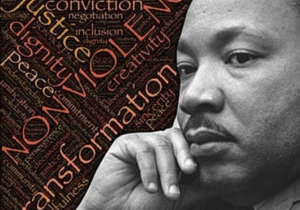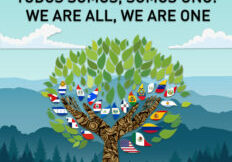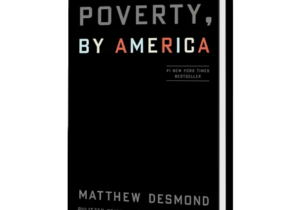Poverty Simulations can be offered in a flexible, virtual format.
Groups of ten or more who are interested in learning about and connecting with the complex issues surrounding poverty on a deeper, more personal level, can now register for the Virtual Poverty Awareness Experience.
Facilitated by a member of the Crisis Assistance Ministry team, this experience consists of three segments:
- An overview of Crisis Assistance Ministry and its role in the Charlotte-Mecklenburg community
- An online simulation experience designed to invoke deeper understanding and empathy surrounding the realities of living with limited financial resources
- A guided group discussion focused on sharing perspectives, understanding challenges, and discussing the collective action needed to create a better society for everyone
The experience is designed for adult learners who live or work in Mecklenburg County. It is conducted via Zoom and can be customized for corporate groups, houses of worship, higher education, and more.
Crisis Assistance Ministry does not charge for facilitating this activity, but donations are greatly appreciated as they help fund the agency’s mission.
- Virtual poverty simulations can be scheduled for groups of 10 or more. To discuss how this experience could benefit your group, please contact our Civic Engagement team directly.
- If your group of 50-80 is interested in an in-person simulation, please contact our Civic Engagement team to find out more about what is involved in hosting these limited opportunities.
What is a Poverty Simulation?
A Poverty Simulation is a facilitated two-hour immersive experience designed to create awareness among participants of life at the bottom rung of the economic ladder. Participants are assigned to “families” who do their best to survive week-to-week over a simulated one-month period. The simulation presents participants with real-life scenarios and challenges faced by people living in poverty. The exercise is immediately followed by a group debrief, during which participants reflect on the experience, discuss insights, and consider next steps.
Participants often tell us they will never forget the overwhelming stress and hopelessness they felt as they walked in the shoes of someone facing poverty.
Since 2008, Crisis Assistance Ministry has been the local lead facilitator of the Community Action Poverty Simulation (CAPS), which is owned by the Missouri Community Action Network. In the last four years alone, nearly 7,000 local citizens, including community leaders, business professionals, and members of faith communities, have experienced a simulation sponsored by our agency. They often leave shaken by the role play, telling us they will never forget the overwhelming stress and hopelessness they felt as they walked in the shoes of someone facing poverty.
The ultimate goal of the Poverty Simulation is to transform these insights into action. Executives have changed policies at their place of work and teachers have pledged to change how they treat children at school as a result of their participation.
If you are interested in hosting a poverty simulation, please contact us by email.
If you are interested in learning more about the Missouri Community Action Network or purchasing a CAPS kit license, please visit communityaction.org or povertysimulation.net.
Participant Testimonials
Poverty Simulation F.A.Q.
Charlotte’s Six-Figure Salary Requirement
Charlotte, North Carolina, has become a place where a comfortable life requires a six-figure salary, according to a recent study from SmartAsset. The study’s authors used a 50/30/20 model for their calculations, in which no more than 50% of a household’s income is allocated for essentials such as housing, transportation, and groceries, 30% for “fun” things such as hobbies and entertainment, and 20% for savings, investments, and paying off debt.
Read MoreThe Injustice of Menstrual Stigma Is Multiplied by Poverty
Period poverty. It’s not a topic normally raised during economic equity discussions, but that doesn’t make it any less relevant. For half the world’s population, menstruation is a biological reality that brings added expenses and, all too often, unwarranted stigma.
Read MoreReflections on Black History Month 2024: Artists, Trailblazers, and the Racial Wealth Divide
Black History Month serves as a reminder of the resilience, strength, and contributions of Black Americans throughout history. It’s also an opportunity to confront the challenges and injustices that persist, including the racial wealth gap. We at Crisis Assistance Ministry know that through collective will and action, our community can honor the legacy of Black history while working toward a future where everyone has the opportunity to thrive and prosper, regardless of race or background.
Read MoreWhy VITA Is So Vital to Our Community
The Volunteer Income Tax Assistance (VITA) program is an often overlooked but invaluable resource for families across the country, including many of the people served at Crisis Assistance Ministry. Aimed at promoting financial wellness and administered by the Internal Revenue Service (IRS), VITA relies on trained volunteers to provide free tax preparation services to eligible taxpayers. The FREE tax return service is available through two Mecklenburg County agencies this year.
Read MoreMLK Day 2024: Upholding the Dream
MLK Day invites us to consider how we can contribute to creating communities founded on love, compassion, and understanding. For nearly 50 years, we at Crisis Assistance Ministry have been working on the front line to do just that by providing help, hope, and understanding to people struggling with limited financial resources.
Read MoreCan We Really Abolish Poverty?
For Pulitzer Prize-winning author and sociologist Matthew Desmond, the answer is YES!
During his recent visit to Charlotte-Mecklenburg, Desmond brought both data and passion to the discussion of why America is one of the richest nations on earth, yet has “more poverty than any other advanced democracy.”
The Cycle of Poverty and Mental Illness
Defining the connection between poverty and mental illness is a chicken-and-egg scenario: does mental illness create an inability to overcome a state of poverty, or does poverty increase or perpetuate the occurrence of mental illness?
Read MoreHispanic Heritage Month: Celebrating Cultures and Contributions
It’s Hispanic Heritage Month! This annual celebration of the cultures and contributions of Americans who trace their roots to Spain, Mexico, the Caribbean, and Central and South America, runs from September 15 through October 15.
Read MoreWill Medicaid Expansion Help Mecklenburg?
This long-awaited move by North Carolina will provide welcome relief to many low-wage earners who often are not offered health insurance through their employers. Considering the struggles of working families here in Mecklenburg County, there are certainly thousands who will benefit from Medicaid expansion in our own community. Based on evidence from other states, it’s likely all of us will reap the benefits of improved community health, lower eviction rates, and a stronger safety net for our neighbors.
Read MoreHear Pulitzer Prize-winning Matthew Desmond
We are proud to partner with Davidson College to co-host Pulitzer Prize-winning author Matthew Desmond on their campus. Desmond’s thought-provoking message will help us understand the systemic issues contributing to poverty and inspire us to be part of the solution here in our own community.
Read More“Poverty, By America”: New Book Asks the Hard Questions
Does poverty exist because we want it to? In his new book, “POVERTY, BY AMERICA,” Matthew Desmond asks this and other provocative questions about persistent poverty in our land of plenty.
Read More











